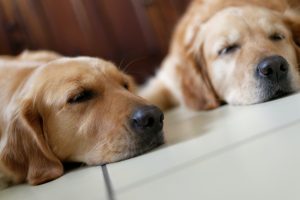Research Integrity
Jennifer Hall; Eileen Salisbury; and Catherine Radbourne

When considering research integrity it is essential to recognise that the ethical conduct of research and pursuit of academia is foundational for open, honest, and responsible research and scholarly activity. This chapter outlines the expectations in research integrity to conduct these activities in ways that are ethical, that match relevant policies and codes, that guide for responsible conduct.
Getting started
What is research integrity?
Integrity in research is critical to assuring research and scientific excellence and public trust. Research integrity is exemplified by ‘a commitment to intellectual honesty and personal responsibility for one’s actions and to a range of practices that characterize responsible research conduct’ (Committee on Assessing Integrity in Research Environments, National Research Council, Institute of Medicine, 2002).
The guiding document for researchers, The Australian Code for the Responsible Conduct of Research (The Code) outlines eight principles that hallmark responsible research conduct.
These are the principles outlined in The Code.
 Exercise: Test and increase your understanding of difficult research dilemmas by downloading and engaging with the Erasmus Dilemma Game or access the pdf, Professionalism and Integrity in Research.
Exercise: Test and increase your understanding of difficult research dilemmas by downloading and engaging with the Erasmus Dilemma Game or access the pdf, Professionalism and Integrity in Research.
Here you’ll find many dilemmas grouped by content providing an overview of the dilemma with various options or actions for your consideration.
Learn more
What are Plagiarism Checkers?

Plagiarism checkers are text matching software that detect and present in report format, instances of duplicated content. Mostly, the checkers work by scanning the submitted work against content databases, including web pages and highlight similarity matches. There has been a proliferation of plagiarism checkers developed to detect plagiarism. Educational institutions and leading scholarly publishers use tools such as Turnitin and/or iThenticate.
It is good practice to use plagiarism checkers to check the originality of your writing.
Watch this short video on the different types of plagiarism.
 Exercise:
Exercise:
Challenge me
Research Misconduct
Researchers are required to maintain the highest standards of research practice in accordance with local policies which represent and are consistent with the Australian Code for the Responsible Conduct of Research, legislation, policies, the accepted practices within a discipline and the codes of relevant external funding bodies.
A deviation from these obligations may be considered either a breach or misconduct.

Research Misconduct may include:
- fabrication, falsification, plagiarism, or deception in proposing, carrying out or reporting the results of research
- failure to declare or manage serious conflicts of interest
- conducting research without ethics approval as required by legislation
- willful concealment or facilitation of research misconduct by others.
Researchers, journal editors and scientific institutions worldwide also work together to improve communication about misconduct cases. The Committee on Publication Ethics (COPE) “provides advice to editors and publishers on all aspects of publication ethics and, in particular, how to handle cases of research and publication misconduct”.
Plagiarism or scientific misconduct is formally identified and recorded in various ways including:
- Blogs such as Retraction Watch
- Referred to COPE
- PubMed and other databases.
 Exercise: View this article retraction.
Exercise: View this article retraction.
The retraction includes explanations, case studies and further readings.
Attribution
Content in this chapter has been developed by QUT Library, including content derived from:
- The Australian Code for the Responsible Conduct of Research, 2018 https://www.nhmrc.gov.au/about-us/publications/australian-code-responsible-conduct-research-2018
All information correct at time of publication, 15 December 2021.
IMAGE CREDITS
Royalty-free images used on this page were sourced from unsplash.com and pixabay.com.
Icons created by priyanka from Noun Project.

